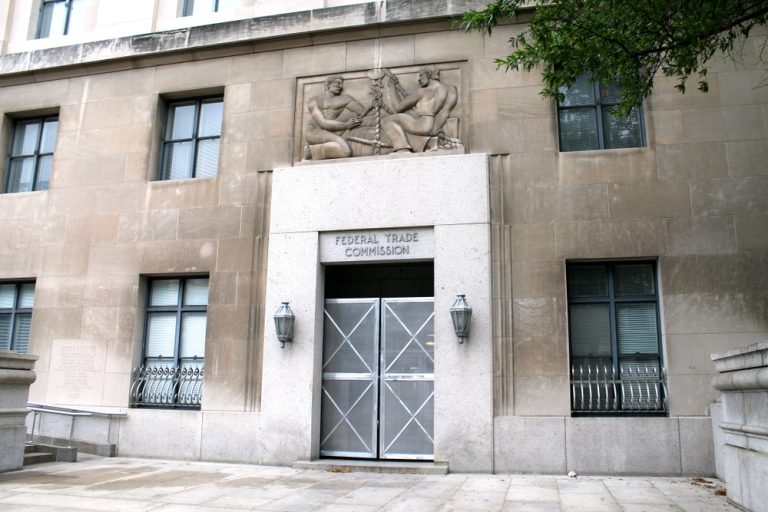Florida Supreme Court Holds FTC’s “Single Document Rule” Does Not Apply to Binding Arbitration Agreements Under Magnuson-Moss Act
Florida Supreme Court Holds FTC’s “Single Document Rule” Does Not Apply to Binding Arbitration Agreements Under Magnuson-Moss Act
On February 18, 2021, the Florida Supreme Court held that binding arbitration of a consumer product warranty claim is categorically different from an informal dispute settlement program under the Magnuson-Moss Warranty Act (“MMWA”) and therefore binding arbitration agreements need not be included in the warranty document itself in order to be enforceable. Les Krol v. FCA US, LLC et. al., No. SC19-952 (Fla. 2021). In arriving at this decision, the Florida Supreme Court opened the door for the expanded use of binding arbitration agreements and settled a certified conflict between the Fifth District Court of Appeal and the Third District Court of Appeal. See Krol v. FCA US, LLC, 273 So. 3d 198, 207 – 208 (Fla. 5th DCA 2019) (certifying conflict with Larrain v. Bengal Motor Co., Ltd., 976 So. 2d 12 (Fla. 3d DCA 2008).
Background – The Magnuson-Moss Act and the FTC Rules
The MMWA governs consumer product warranties. It requires certain disclosures with respect to written warranties to protect consumers from deceptive warranty practices. In the event a consumer believes a warrantor has breached the terms of its warranty, the MMWA provides for a private cause of action. The MMWA also allows a warrantor to adopt an “informal dispute settlement mechanism” as prerequisite to litigation so long as it complies with the requirements of 16 C.F.R. § 703. 15 U.S.C. § 2310(a)(3); see also 15 U.S.C. § 2302(a)(8) (referring to use of the informal procedure “before pursuing any legal remedies in the courts”).
The term “informal dispute settlement mechanism” lies in the plain text of the MMWA. Congress expressly declared its “policy to encourage warrantors to establish procedures whereby consumer disputes are fairly and expeditiously settled through informal dispute settlement mechanisms.” Krol, No. SC19-952, 2021 WL 626972, at *2–3; 15 U.S.C. § 2310(a)(1). Importantly, pursuant to 16 C.F.R. § 703.5(j) the decisions of an informal dispute settlement mechanism “shall not be legally binding on any person.”
When it enacted the MMWA, Congress also directed the Federal Trade Commission (“FTC”) to “prescribe rules setting forth minimum requirements for any informal dispute settlement procedure” governed by the MMWA. 15 U.S.C. § 2310(a)(2). Under this authority, the FTC adopted 16 C.F.R. § 701.3 which is more commonly known as the “single document rule.” The single document rule contains a list of nine items that a warrantor must disclose clearly and conspicuously in a “single document.” Id. Specifically, subsection (6) of the single document rule requires a warrantor to disclose “information respecting the availability of any informal dispute settlement mechanism elected by the warrantor…” 16 C.F.R. § 701.3.
The Krol Case
Krol purchased a truck from Gibson Auto Sales. Gibson Auto Sales provided a written warranty with the truck, and the sales contract included a binding arbitration agreement for any dispute related to Krol’s purchase. Krol began to experience problems with the truck and filed suit against Gibson Auto Sales under the MMWA alleging breach of the written warranty. Gibson Auto Sales moved to compel arbitration in accordance with the agreement in the sales contract. Krol opposed the motion, and argued that the arbitration provision was unenforceable because it was not contained within the written warranty, in violation of the single document rule. The trial court granted Gibson Auto Sales’ Motion, and Krol appealed.
On appeal, the Fifth District affirmed the trial court’s ruling. The Fifth District looked to the plain language of the MMWA and FTC rules and held that the FTC rules apply specifically to “informal dispute settlement mechanisms”, but are silent as to the “completely separate process of binding arbitration.” Krol v. FCA US, LLC, 273 So. 3d 198, 208 (Fla. 5th DCA 2019). In reaching its decision, the Fifth District rejected the FTC’s position that binding arbitration is not permitted under the MMWA and expressly found it was. When it affirmed the trial court’s ruling, the Fifth District Court of Appeal also certified a conflict with the Third District Court of Appeal’s decision in Larrain v. Bengal Motor Co. Ltd., which held that a binding arbitration agreement must comply with the FTC’s single document rule.
In the Florida Supreme Court, Krol raised three subsections of the single document rule which he claimed require disclosure of the binding arbitration provision in the warranty—specifically 16 C.F.R. § 701.3(a)(3), (5), and (6). The Florida Supreme Court focused on the specific plain language of the single document rule, and wasted little space rejecting Krol’s arguments regarding subsections (3) and (5) because “neither has anything to do with the legal remedies available to the consumer when a warrantor fails to honor its obligation.” Krol, No. SC19-952.
The Court focused the remainder of its decision explaining subsection (6) which requires the disclosure of information related to an “informal dispute settlement mechanism.” 16 C.F.R. 701.3(a)(6). Krol attempted to equate the MMWA’s non-binding “informal dispute settlement mechanism” with binding arbitration. The Florida Supreme Court rejected this argument and again looked to the plain language of 16 C.F.R. § 701 in addition to the MMWA’s requirements for an “informal dispute settlement mechanism.” As succinctly stated by Fifth District Court of Appeal and quoted by the Florida Supreme Court: “‘binding arbitration is not comparable to the informal dispute settlement procedures described in [the MMWA] because it is not a prerequisite to litigation—it is a substitute for litigation.’”
Finally, the Court rejected the Third District’s opinion in Larrain because itrelied on two interpretive errors made in Cunningham v. Fleetwood Homes of Georgia, 253 F. 3d 611 (11th Cir. 2001), which the Third District incorporated into its opinion. The Court explained that the Third District erred by allowing the “expressed purpose of the Act to eclipse the specific requirements of the single document rule’s text.” (emphasis in original). The Court further explained that “statutory purpose, while undoubtedly relevant to legal interpretation, cannot trump the clear requirements of the applicable text.” Thus, the Third District, and the court in Cunningham, “paid insufficient attention to the text of the single document rule” and confused a non-binding informal dispute settlement mechanism with a binding arbitration agreement.
Impact of the Decision
Krol is an example of the trend of Florida Supreme Court decisions based on textualism and has significant implications on consumer product warranty law in Florida. The Court recognized that informal dispute settlement mechanisms are a prerequisite to litigation under the MMWA, whereas binding arbitration agreements are a substitute for litigation, and are categorically different from each other. Therefore, binding arbitration agreements need not be included within a warranty in order to be enforceable under the MMWA.
The Court further noted that the FTC has taken the position that the MMWA prohibits a warrantor from using binding arbitration agreements in consumer product warranty disputes. After acknowledging that this specific issue was not before it, the Court pointed out that Florida’s Fifth District Court of Appeal and the U.S. Courts of Appeals for the Fifth and Eleventh Circuits, and, have expressly rejected the FTC’s position. See Krol v. FCA US, LLC, 273 So.3d 198, 201 (Fla. 5th DCA 2019); Davis v. S. Energy Homes, Inc., 305 F. 3d 1268, 1272 (11th Cir. 2002); Walton v. Rose Mobile Homes LLC, 298 F. 3d 470, 479 (5th Cir. 2002);. Although the Court said it was not directly addressing the enforceability of binding arbitration agreements, under the MMWA, the fact the Florida Supreme Court did not simply raise the FTC’s position and reverse the Krol case may signal that the Court also disagrees with the FTC’s position and will uphold binding arbitration agreement under the MMWA.









